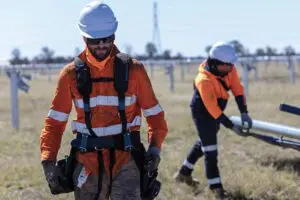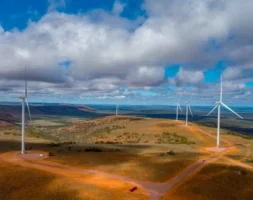Former Socceroos captain Craig Foster has called on Australia to show its ability to be a leader in climate change action as host of the 2023 Womens World Cup.
Australia and New Zealand recently succeeded in winning hosting rights for the 2023 women’s World Cup, which will see 32 countries compete in the tournament across the two countries, with a global audience approaching 300 million people.
Foster, who played 29 games for the Socceroos between 1996 and 2000, included the call for a ‘Green World Cup’ in a letter to the Football Federation of Australia, saying that as host of the 2023 women’s world cup, Australia would have a global platform to encourage increased global action on climate change.
“Like the reference to proposed event conferences on gender equality and women’s rights, so too might the World Cup be characterised as an opportunity to further the climate change agenda in sport globally, and make a major contribution to the world,” Foster wrote.
“The majority of Australians wish to see action and a green World Cup would have ramifications for all commercial partnerships for the event, not only the energy sector category, an approach which might positively affect not just competing players, who may become champions of the human condition, but the national, and global audience forecast to be in the billions,” the letter adds.
In the letter, Foster noted that Australia has itself been significantly impacted by a warming climate, including a severe bushfire season that devastated communities across the most recent Australian summer and that the world cup would be held in a Pacific region facing a damaging future under climate change.
“The 2023 FIFA World Cup in Australia (and New Zealand) should use every opportunity to amplify the urgency of the global challenge, particularly after the summer that Australia just endured with the destruction of tens of millions hectares of precious biodiversity, not to mention human life,” Foster’s letter said.
“Further, not only is Australia at the frontline of environmental consequences and our indigenous peoples disproportionately affected, but our Pacific neighbours and members of the Oceania Football Confederation, which is co-hosting the event, are facing a devastating future ravaged by changing weather systems.”
Climate Council CEO Amanda McKenzie endorsed the call, saying the global audience that the women’s world cup would attract would be a unique opportunity for Australia to demonstrate it can exhibit some leadership on climate change.
“Craig Foster is absolutely right in saying that climate change should be front and centre of the 2023 World Cup,” McKenzie said.
“The Women’s World Cup is an opportunity for Australia to show global leadership on climate change. It’s in our interest to do this. We only have to look at the summer’s catastrophic bushfires and the bleaching of the Great Barrier Reef to see the toll climate change is taking on Australia.”
Australia was previously unsuccessful in a bid to host the 2022 men’s world cup, a bid that it ultimately lost to Qatar.
Ironically, in addition to claims of corruption in the bidding process, and the use of modern slavery in infrastructure construction, the Qatar world cup has faced criticism for its plans to host a global football tournament in a country where temperatures regularly exceed 45 degrees Celsius.
Stadiums built for the world cup in Qatar will feature air-conditioning facilities built into stadium seating to account for the high temperatures, raising questions around the level of energy consumption required for the tournament, particularly in a country rich with gas.








